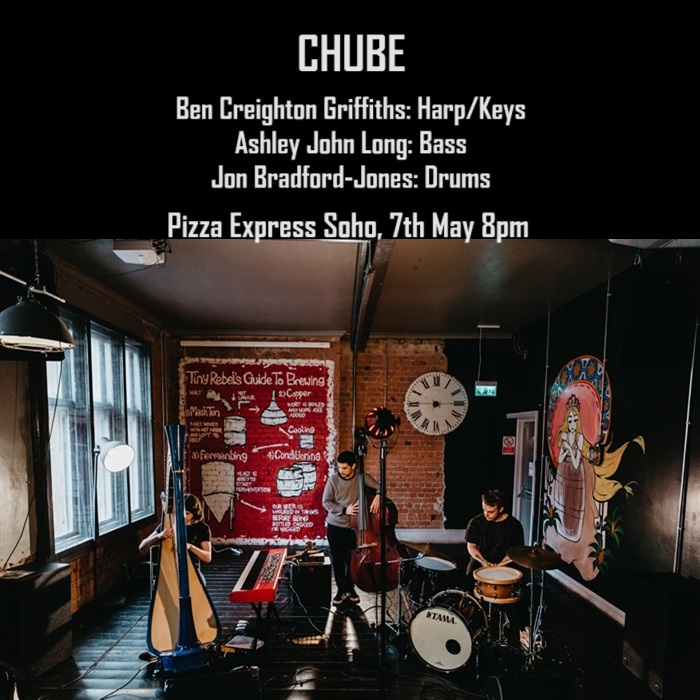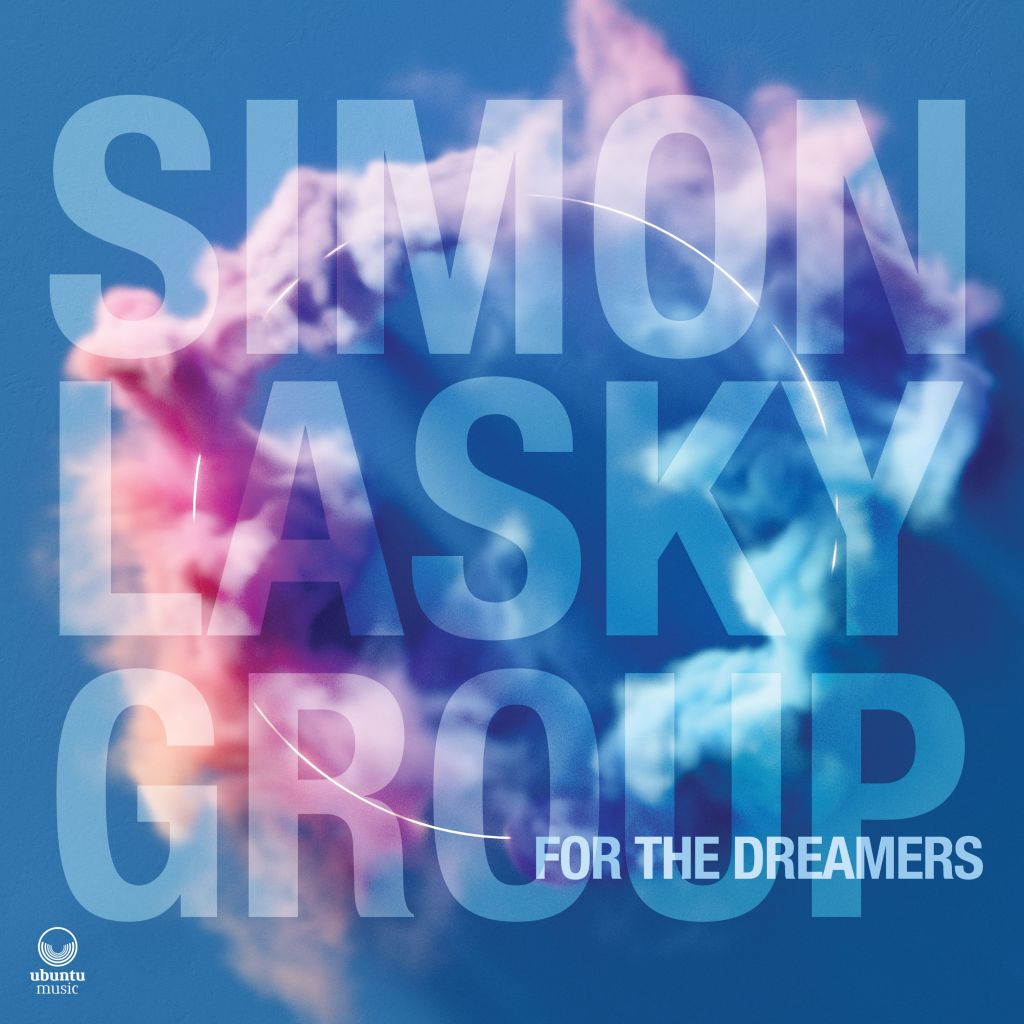
Malcolm Mills. Photo by Miriam Mills
 ‘It was the early dawn light of an independent-music explosion in the UK in 1976, mainly from punk and New Wave,’ Mills recalls. ‘There was a feeling that if you could figure out how to get it done, you could make a record. I’d just started my own import business, bringing in American records and selling them by mail order. One day, I was having a beer with Bruce Colcutt, Major Surgery’s bass player, and I found myself saying “I’ll record the band”. I didn’t know how to book a studio, or make an MCPS application, or how to get records distributed – or not, in my case! But amazing music is gone in flash in jazz, it’s instant creativity – not like rock and roll where the same tune might get played over and over. I felt if I didn’t capture it, it would be gone forever. I pressed 500 albums, stuck a label saying ‘Premature nostalgia’ on the sleeves, and managed to sell quite a few through distributors including the late lamented John Jack. The rest ended up gathering dust in my archives.’
Mills was engrossed in building the Proper Music operation which stemmed from the business he founded in 1988, and the Major Surgery discs disappeared into a succession of warehouse moves as the company expanded. Fast forward to 2012, when Mills’ long-time friend Joop Visser (a key contributor to the planning and erudite liner-notes of Proper’s archive series of classic-jazz box-sets) dropped into the office to tell him that Don Weller had undergone a heart bypass, and Major Surgery’s powerhouse drummer Tony Marsh had died. Mills pulled ‘The First Cut’ out of the rack on the spot, and played it for the first time in years.
‘I wanted to get it back out there, because it still sounded fresh,’ says Mills. ‘But the original recording was a bit thin, so I pulled out all the original tapes, Don and Bruce came in, we remixed it together and stuck on the bonus track, ‘Calypso Reg’. So this month’s release is a numbered limited edition of the last hundred of those 2012 pressings. So when they’re gone, they’re gone.’ The CD is already sold out.
Malcolm Mills formed The Last Music Company (‘it’s my semi-retirement project’) in 2018, to curate and release music by favourite artists of his who also happen to be friends – like Dr John, American singer-songwriter Bill Kirchen and Texas blues-rock original Jimmie Vaughan. Major Surgery and Tony Kofi securely shelter under that umbrella too. Mills heard the Thelonious Monk-devoted music that a Kofi band including pianist Jonathan Gee was making in the early Noughties, and liked it so much that he launched a new departure for Proper Records – releasing newly-recorded jazz produced in the company’s studio on the Specific Jazz label – with Kofi’s ‘All Is Know’ in 2004.
‘It was the early dawn light of an independent-music explosion in the UK in 1976, mainly from punk and New Wave,’ Mills recalls. ‘There was a feeling that if you could figure out how to get it done, you could make a record. I’d just started my own import business, bringing in American records and selling them by mail order. One day, I was having a beer with Bruce Colcutt, Major Surgery’s bass player, and I found myself saying “I’ll record the band”. I didn’t know how to book a studio, or make an MCPS application, or how to get records distributed – or not, in my case! But amazing music is gone in flash in jazz, it’s instant creativity – not like rock and roll where the same tune might get played over and over. I felt if I didn’t capture it, it would be gone forever. I pressed 500 albums, stuck a label saying ‘Premature nostalgia’ on the sleeves, and managed to sell quite a few through distributors including the late lamented John Jack. The rest ended up gathering dust in my archives.’
Mills was engrossed in building the Proper Music operation which stemmed from the business he founded in 1988, and the Major Surgery discs disappeared into a succession of warehouse moves as the company expanded. Fast forward to 2012, when Mills’ long-time friend Joop Visser (a key contributor to the planning and erudite liner-notes of Proper’s archive series of classic-jazz box-sets) dropped into the office to tell him that Don Weller had undergone a heart bypass, and Major Surgery’s powerhouse drummer Tony Marsh had died. Mills pulled ‘The First Cut’ out of the rack on the spot, and played it for the first time in years.
‘I wanted to get it back out there, because it still sounded fresh,’ says Mills. ‘But the original recording was a bit thin, so I pulled out all the original tapes, Don and Bruce came in, we remixed it together and stuck on the bonus track, ‘Calypso Reg’. So this month’s release is a numbered limited edition of the last hundred of those 2012 pressings. So when they’re gone, they’re gone.’ The CD is already sold out.
Malcolm Mills formed The Last Music Company (‘it’s my semi-retirement project’) in 2018, to curate and release music by favourite artists of his who also happen to be friends – like Dr John, American singer-songwriter Bill Kirchen and Texas blues-rock original Jimmie Vaughan. Major Surgery and Tony Kofi securely shelter under that umbrella too. Mills heard the Thelonious Monk-devoted music that a Kofi band including pianist Jonathan Gee was making in the early Noughties, and liked it so much that he launched a new departure for Proper Records – releasing newly-recorded jazz produced in the company’s studio on the Specific Jazz label – with Kofi’s ‘All Is Know’ in 2004.
 ‘That Monk project got my attention big time,’ Mills affectionately remembers. ‘Monk was a complete art-form in himself, and a lot of very good people have tried to recapture that art and failed, often because the groups they’re in don’t catch the dynamics that the instrumentalists of Monk’s day did. But in Tony’s band, it wasn’t just his playing, the whole group sounded fantastic to me. Winston Clifford had that Frankie Dunlop drum sound, Jonathan Gee was wonderful. So I said to Tony, “I’ll back you, anything you want to do, let me help take your stuff to the marketplace”, and I’ve worked with him ever since. The new album gets that church feeling Cannonball had, Tony’s as close to that sound as you’re likely to get, and the whole band do their bit to bring it alive.’
Mills takes a back seat from the day-to-day running of Proper nowadays, but he regards the company’s 100-plus staff as family and is palpably proud of having built a music-first venture into the biggest independent distribution operation in the UK, servicing often uncommercial and niche work from over 600 small labels from all over the world – including such influential new-music prophets as Germany’s legendary ECM. He also feels exonerated by having stuck to his original guns across decades of seismic transformations in the way music is marketed and shared.
‘We’re good at putting things in boxes in any quantities – large or small, we’re the best in the country at that,’ Mills says with evident relish. ‘My view of this industry is that there are people creating music and people consuming it, and we’re the tunnel, or the bridge, joining them up. Of course we have a digital side nowadays for those that want it, but we’re primarily a physical distributor because there is still a consumer demand for the format, generating business for our music retail partners worldwide. The future is obviously increasingly direct transmission of music to the consumer, but that doesn’t inevitably mean streaming. When somebody buys Tony Kofi’s album, they’re buying the work of a group of dedicated musicians devoting their life to the art. If it costs 25 quid, you’re going to get a lot of fun out of it for a long time. You’ll keep hearing something different in it, and with a bit of luck it’ll be worth a lot more in years to come!’
A hundred numbered vinyl copies of Major Surgery’s ‘The First Cut’, and the vinyl LP of the Tony Kofi quintet’s ‘Another Kind of Soul – A Portrait of Cannonball’ will be released by Malcolm Mills’ The Last Music Company on April 24. The latter will also be available in digital formats.
LINKS: Pre-Order Tony Kofi’s Another Kind of Soul
Order Major Surgery’s The First Cut
‘That Monk project got my attention big time,’ Mills affectionately remembers. ‘Monk was a complete art-form in himself, and a lot of very good people have tried to recapture that art and failed, often because the groups they’re in don’t catch the dynamics that the instrumentalists of Monk’s day did. But in Tony’s band, it wasn’t just his playing, the whole group sounded fantastic to me. Winston Clifford had that Frankie Dunlop drum sound, Jonathan Gee was wonderful. So I said to Tony, “I’ll back you, anything you want to do, let me help take your stuff to the marketplace”, and I’ve worked with him ever since. The new album gets that church feeling Cannonball had, Tony’s as close to that sound as you’re likely to get, and the whole band do their bit to bring it alive.’
Mills takes a back seat from the day-to-day running of Proper nowadays, but he regards the company’s 100-plus staff as family and is palpably proud of having built a music-first venture into the biggest independent distribution operation in the UK, servicing often uncommercial and niche work from over 600 small labels from all over the world – including such influential new-music prophets as Germany’s legendary ECM. He also feels exonerated by having stuck to his original guns across decades of seismic transformations in the way music is marketed and shared.
‘We’re good at putting things in boxes in any quantities – large or small, we’re the best in the country at that,’ Mills says with evident relish. ‘My view of this industry is that there are people creating music and people consuming it, and we’re the tunnel, or the bridge, joining them up. Of course we have a digital side nowadays for those that want it, but we’re primarily a physical distributor because there is still a consumer demand for the format, generating business for our music retail partners worldwide. The future is obviously increasingly direct transmission of music to the consumer, but that doesn’t inevitably mean streaming. When somebody buys Tony Kofi’s album, they’re buying the work of a group of dedicated musicians devoting their life to the art. If it costs 25 quid, you’re going to get a lot of fun out of it for a long time. You’ll keep hearing something different in it, and with a bit of luck it’ll be worth a lot more in years to come!’
A hundred numbered vinyl copies of Major Surgery’s ‘The First Cut’, and the vinyl LP of the Tony Kofi quintet’s ‘Another Kind of Soul – A Portrait of Cannonball’ will be released by Malcolm Mills’ The Last Music Company on April 24. The latter will also be available in digital formats.
LINKS: Pre-Order Tony Kofi’s Another Kind of Soul
Order Major Surgery’s The First Cut
Categories: Features/Interviews












Recent Comments